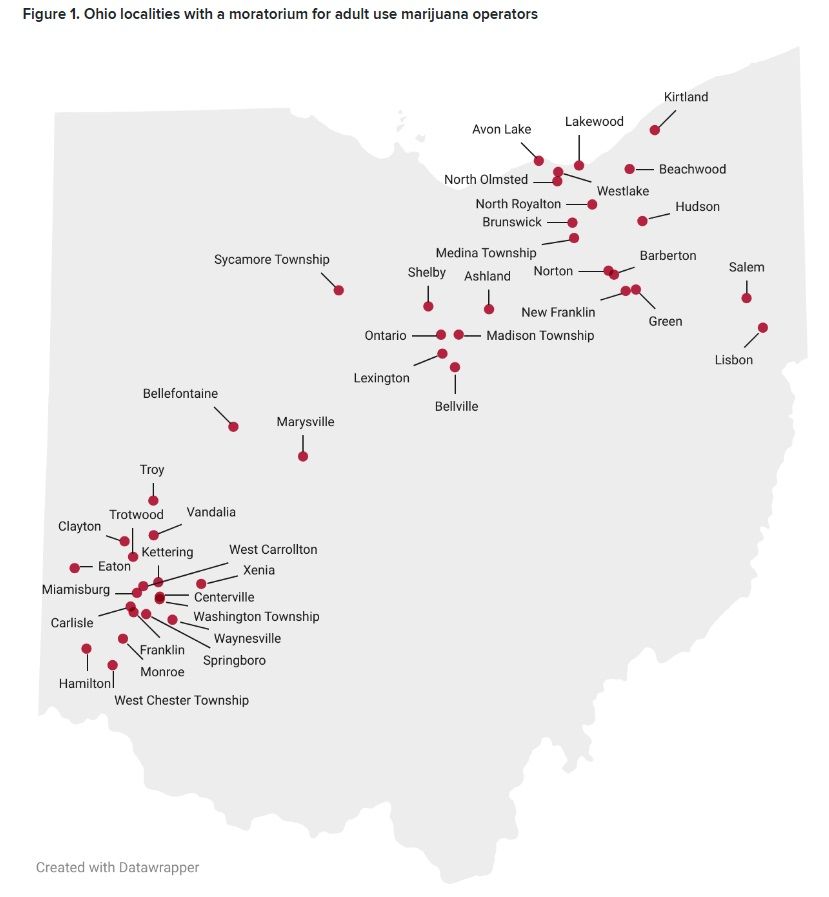The Ohio initiative that legalized recreational marijuana, approved by voters last year, allows cities to opt out of allowing marijuana sales. So far, dozens have chosen to do so.

According to a new report from Ohio State University’s Drug Enforcement and Policy Center, 47 cities and townships have chosen to pass temporary or permanent bans on the licensed distribution of marijuana, making it illegal for a marijuana store to open within their boundaries. This represents 2% of the state’s over 2,000 cities, townships, and villages.
Notably, none of the state’s most populated cities have enacted such a policy, with the average population of the cities implementing bans being around 20,000. One factor that may be contributing to fewer Ohio cities imposing bans than other states— in Michigan and New York, for example, over 50% of cities have bans on marijuana stores— is the Host Community Fund established under Issue 2, Ohio’s marijuana legalization initiative.
“While the current law gives communities the power to prohibit adult-use cannabis operators from their jurisdictions, it also created an incentive for municipalities to allow operators by establishing the Host Community Fund,” states the report. 36% of all marijuana tax revenue goes into the Host Community Fund, which is distributed among cities and towns that allow marijuana sales.
“This revenue, along with the local sales tax collected from the sale of recreational marijuana, can be used by communities to fund their own priorities,” notes the research.

Under Ohio’s marijuana law, if the state issues a license to a potential marijuana business, the locality in which it would be located has 120 days to enact an ordinance banning such outlets. If they do so, the business has 60 days to cease operations or start a process of initiating a petition that could put the issue to a vote of the people in the next general election.
Yesterday, the Joint Committee On Agency Rule Review (JCARR) granted final approval to regulatory changes that enable the Division of Cannabis Control (DCC) to start issuing dual licenses in the coming weeks. These licenses would allow currently operating medical marijuana dispensaries to also sell to recreational consumers (anyone 21 and older) as soon as next month.
Under Issue 2, which was approved by voters last year 57% to 43%, those 21 and older are allowed to legally possess up to 2.5 ounces of marijuana and up to 15 grams of marijuana concentrates. They are also allowed to cultivate up to six marijuana plants at a private residence, for personal use. The Division of Cannabis Control is responsible for licensing and regulating the new marijuana industry. The agency can issue up to 350 marijuana business licenses and is required to issue at least 50.







